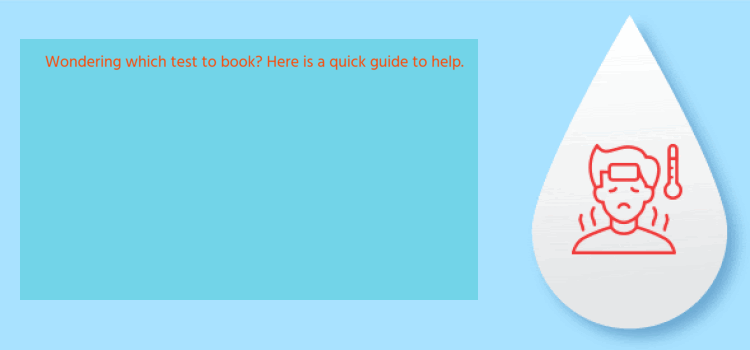Dengue Fever
- 2022-09-01
Currently, there is a steep rise in the cases of Dengue
across Nepal which could be attributed to a drop in temperature and changes in
the season. Although Dengue infection can occur at any time of the year, it frequently
occurs between July to October as it provides perfect breeding conditions for Aedes
aegypti, their carrier.
Did you know around 390 million people suffer from Dengue
infections every year*? So, gear up to fight Dengue this season by preventing
mosquito bites.
SYMPTOMS OF DENGUE : High grade fever, Headache, Joint pain, Skin
rashes and Weakness.
The symptoms of dengue
can be confused with other common illnesses such as flu, malaria, and
chikungunya. However, dengue should be suspected if you develop a sudden onset
of high-grade fever (above 104-Degree Celsius) along with rash, nausea, and
body ache.
According to the WHO, dengue
can be categorized into 3 phases:
Febrile phase
· This
phase usually lasts 2-7 days and is often accompanied by:
· Generalized
body ache
· Eye
pain (pain with eye movement)
· Muscle
pain
· Joint
pain
· Headache
· Loss
of appetite
· Nausea
· Vomiting
· Facial
flushing
· Skin
rashes
· Respiratory
symptoms (cough, sore throat, congestion, etc)
Critical phase
The fever usually
decreases around the 3rd to 7th day of illness. This marks the beginning of the
critical phase. It is followed by extreme fatigue which can last for a few days
to weeks. There could also be a rapid decrease in the platelet & leucocyte
(white blood cell) count. In some cases, there can be severe organ impairment
& internal bleeding.
Recovery phase
Post critical phase,
there is an improvement in the condition of the patient in the following 48-72
hours. In this phase, there is an improvement in the appetite and
gastrointestinal symptoms. There might be a reappearance of skin rash in the
recovery phase.
Note: In younger
children, these symptoms are generally mild but older kids and adults may have
moderate to severe symptoms depending on the intensity of the infection.
Signs of severe dengue
As per the CDC, about 1
in 20 people who get sick with dengue may develop a severe form of dengue.
After the first sign of dengue appears, it may take around 3-7 days for the
disease to turn into a severe condition. This is the critical phase which can even
lead to a drop in the temperature which is not a sign that a person is
recovering but a sign that special care is needed.
The warning signs which
indicate severe dengue are:
· Severe
abdominal pain
· Rash
all over the body
· Bleeding
gums
· Blood
in vomit
· Rapid
heart rate
· Low
blood pressure
· Difficulty
in breathing
· Fatigue/
restlessness
· Severe
bleeding
In case you suffer from
any of these symptoms, it is advised to immediately get admitted to a hospital
and follow your doctor’s suggestions without fail.
Most people with Dengue fever can be treated at home with adequate rest, plenty of fluids and a nutritious protein-rich diet. However, it is important to get in touch with a doctor in case of severe symptoms or worsening of existing, symptoms. Monitor even a slight increase in temperature with our fever panel package.
Wondering which test to book? Here is a quick guide to help.
COMPLETE BLOOD COUNT (CBC):
- Dengue is frequently associated with decreased platelet count (normal platelet count lies in the range of 1.5 to 4 lacs). Therefore, the platelet count should be monitored carefully and regularly, especially when the fever comes down. Also, there may be a drop in White Blood Cells (WBC) count, which is called leukopenia.
- When to get tested: Anytime during the infection.
- CBC is a simple yet crucial blood test that acts as your body's disease detector.
- Note: Diagnosis of Dengue does not depend SOLELY on platelet counts.
DENGUE NS 1 ANTIGEN
- This test detects the presence of the Dengue NSI antigen in the blood. The NSI antigen starts to appear from the very first day of Dengue infection and may be present for up to 5-7 days. Post that, the level of the antigen starts to disappear from blood and increases the risk of false-negative results.
- When to get this test: Within 0-5 days of the onset of symptoms
DENGUE RT-PCR TEST
- This test helps to diagnose Dengue fever by
detecting the viral genome (the genetic material of the virus) in the blood. It
is the most sensitive & specific test if done within the 1st week of
infection. The Dengue RT-PCR test gives you an appropriate and quick diagnosis.
- When to get tested: From 0 day till the
viral particles are present in blood
IMMUNOGLOBULIN M (IgM) TEST FOR DENGUE
- If you experience the symptoms of Dengue
continuously for more than 5 days, then this test is advised. It detects the
presence of IgM in the blood. This antibody starts developing after 4-5 days of
infection and signifies acute infection or recent infection.
- When to get tested: After the 5th day of
the onset of symptoms
- Have flu-like symptoms for more than 5
days? Get the Dengue IgM test.
IMMUNOGLOBULIN G (IgG) TEST FOR DENGUE
- This test is used to detect Dengue
infection in the later course of the disease or past infection. The presence of
IgG antibodies signifies recovery after Dengue or post-vaccination against
Dengue. Post infection, the level of IgG increases slowly and can remain in the
blood for around 90 days and in some cases, for the rest of your life.
- When to get tested: After 14 days of infection or even later
- Wondering if you had a Dengue infection previously? Clear your doubts with an IgG antibody test.
Medically Reviewed by
Dr. Anish Mahato, General Physician
Reference:
1.
"https://www.who.int/news-room/fact-sheets/detail/Dengue-and-severe-Dengue



























Leave Comment